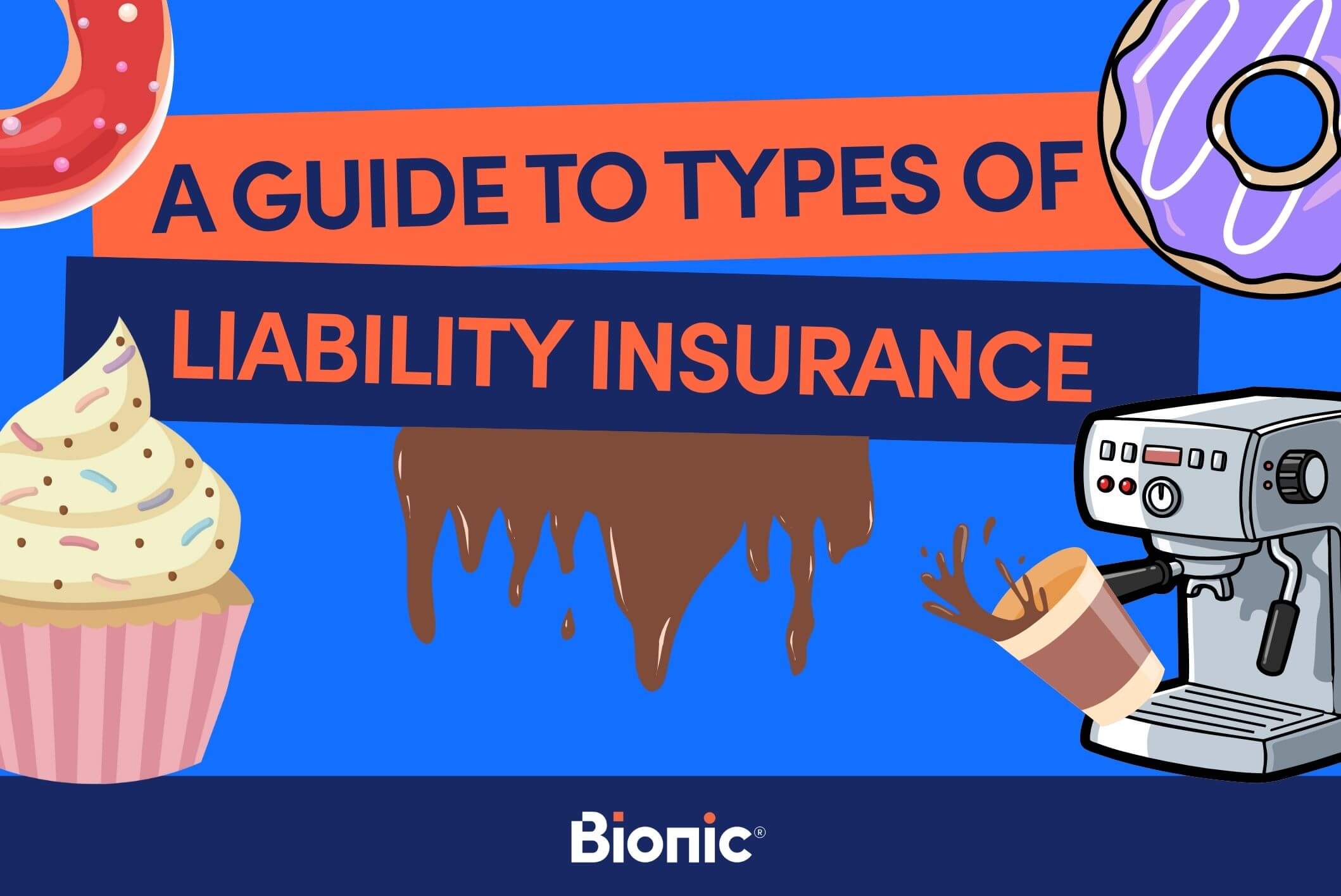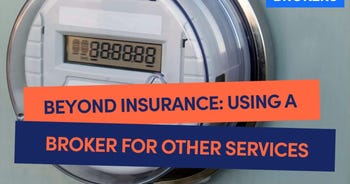A complete guide to the types of liability insurance
In 2025, it’s never been more important to have financial safety. Liability Insurance can be an easy way of protecting individuals and your business if something goes wrong. Whether you’re face-to-face with customers, employing staff, selling products or in a professional advice service, there are always risks and potential legal and financial consequences.
This guide will break down the different types of liability insurance, including what they are, who requires each type, legal requirements, and how Bionic can help you compare quotes and help you find the right cover for your business.

What is liability insurance?
Liability insurance is a method of helping to protect your business and cover the cost of legal fees, compensation and associated costs if you or your business are found liable for causing financial loss, damage, injury or harm to any person or organisation.
However, this does not mean all liability insurance is the same - there are many types of cover, meaning liability insurance is a broad category of insurance with a lot to consider. Some liability insurance types cover compensation for the physical injury of employees at work, while others safeguard directors from legal action. Some types are even required by law, such as employers' liability insurance, while others are optional but often required to manage potential risks.
Although liability insurance often covers costs such as legal defence costs, it does not typically cover the consequences of criminal acts, deliberate damages, or liability outside of your policy’s scope.
Policies will vary per provider, and terms and conditions apply, so always check the small print in your policy wording to see what’s included and excluded.
Types of liability insurance
Below are the five main types of liability insurance that individuals and businesses commonly consider.
Each protects against a different kind of risk, and many businesses need a combination of several types to ensure complete protection.
The main types of liability insurance are:
- Public Liability Insurance
- Employers’ Liability Insurance
- Product Liability Insurance
- Professional Indemnity Insurance
- Directors’ and Officers’ Liability Insurance
Public liability insurance
What is public liability insurance?
Public liability insurance helps protect businesses against third-party claims of physical injury or property damage due to your business or associated activities.
This cover could help protect you from claims of negligence by persons that do not directly operate within the business, from customers, clients, to members of the public.
It can help cover certain costs in the event a claim is covered. Costs may include the value of legal defence, compensation payouts and other related expenses.
Is public liability insurance a legal requirement?
Public liability insurance is not a legal requirement for businesses, but it can be essential if your business:
- Welcomes customers to a premises (like a shop, salon or cafe)
- Works in public places (for example, construction or, landscaping)
- Operates on client sites (like, trades or events)
Many organisations across the commercial and public sectors require proof of liability cover on a contractual basis. Therefore, having public liability insurance could increase your chances or getting work.
Employers’ liability insurance
What is employers’ liability insurance?
Employers’ liability insurance helps protect your business from paying the compensation and legal fees required as a result of any injuries caused to your staff as a consequence of their work.
This can include direct injuries within the workplace, hearing loss from a loud work environment, repetitive strain injury (RSI) and accidents while working off-site.
Past employees could also be entitled to make claims, even years later; therefore, your insurance can help cover them beyond their time with the company.
Is employers’ liability insurance a legal requirement?
Employers’ liability insurance is a legal requirement for many businesses in the UK if they hire or enrol any permanent or temporary staff. This includes staff who are:
- Full-time or part-time employees
- Apprentices and trainees
- Volunteers or unpaid interns
- Temporary and seasonal workers
As this is a legal requirement for businesses, organisations may face fines of up to £2,500 per day for being uninsured.
Product liability insurance
What is product liability insurance?
Product liability insurance can help protect your business from the cost of legal fees and compensation resulting from a product you sell, supply, import or manufacture causing harm to any person or property.
Whether a product is produced by your business or imported from elsewhere, your business may be liable if it causes damage or harm, meaning product liability insurance is essential to ensure your business is covered for any product-related legal enquiry.
Is product liability insurance a legal requirement?
Product liability insurance is not a legal requirement for UK businesses - but, if you run a shop, wholesale business or manufacturing plant (to name a few) you should consider it.
This liability insurance type helps in the event of claims for defective or harmful products, which could be severe, and the implications of multiple products causing harm could be considerable for the financial security of your business.
Professional indemnity insurance
What is professional indemnity insurance?
Professional indemnity (PI) insurance can help protect businesses from claims that a service provided to a client, such as advice or expertise, caused financial losses.
Claims such as these are typically harder to prove and can extend to lengthy legal proceedings, therefore you should consider investing in professional indemnity insurance, particularly if your services include consultancy, creative, financial, legal or technical services. Policies can typically cover the financial consequences and compensation of professional negligence, defamation, breach of contract and loss of sensitive documents.
Is professional indemnity insurance a legal requirement?
Professional indemnity insurance is not a legal requirement for businesses, but it is expected in certain sectors, such as finance and legal, due to corresponding governing bodies. Additionally, it is also an expectation of clients in some industries to view proof of liability cover on a contractual basis.
Directors’ and officers’ liability insurance
What is directors’ and officers’ liability insurance?
Directors’ and officers’ (D&O) liability insurance can help protect leadership within a company from personal liability for decisions made while in post. This could include decisions like employee disputes, misuse of company funds, and negligent misstatements. This liability insurance type can help cover claims made against them from shareholders, employees, regulators and suppliers.
The benefit of this liability insurance type is that it prevents personal assets from being put at risk as coverage includes the cost of settlements, investigation fees and legal defence.
Is directors’ and officers’ liability insurance a legal requirement?
Directors’ and officers’ liability insurance is not a legal requirement for businesses to provide for their leadership - however, it can be especially important for companies with boards, external investors and regulated businesses.
Overlaps and gaps of liability insurance types
As we’ve seen, there are many financial risks to businesses, and each liability insurance type covers different ones.
- Public liability insurance can help cover injury to your customers, but it doesn’t cover injuries to your staff - for this, you would need employers’ liability cover.
- Product liability insurance can help cover the consequences of faulty products, but not bad advice - for this, you would need professional indemnity insurance.
- Directors’ and officers’ liability insurance can help protect directors from personal claims, but not the business.
Depending on your business, it might be a good idea to consider a package insurance for your trade.
You could start creating a simple checklist to see which cover types apply to your business, use our comparison tool and then speak to one of Bionic’s insurance brokers to compare insurance quotes from our vetted panel of trusted insurers.
How Bionic can help you protect your business
Bionic helps you compare business insurance quotes from a vetted panel of trusted insurers. With our comparative service, we’ll ensure you only pay for the cover you need, so you can keep your costs down while getting the right cover for your business needs. Whether you're a small business down the high street or an SME with multiple branches, get in touch with us today, Ready to protect your business with the right mix of liability insurance?








